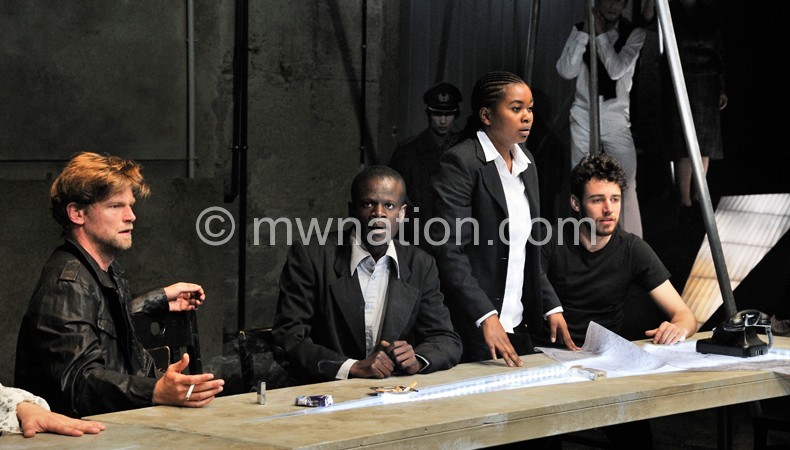Towards a global stage, Mjumira, Kapiri share foreign theatre lessons
Globalisation has affected most aspects of human society ranging from culture, medicine, travel to education. The arts sector has not been spared from this phenomenon.
Globalisation has made it easy for artists to share experiences and learn from each other. The ease of communication and transportation has made the world smaller and brought continents closer resulting in an increase in cultural exchange programmes between countries.


In Malawi, Nanzikambe Arts Theatre is one of the artists that have benefited from such programmes. But, what are other benefits of exchanging experiences between art groups from different countries?
In the book Theatre in Africa, published after a cultural exchange programme Crossing the Borders: From Lake to Lake, the predominant experience of the authors who were also involved in the project is that the experience helped bust some of the misconceptions they had about each other’s cultures.
Former Nanzikambe actor Thoko Kapiri, who is studying for a Master’s Degree in Switzerland, but currently is in China, in a workshop-based multidisciplinary arts project between an artist from Switzerland and China dubbed Common Stage tells Chill that there is more to the advantages of cultural exchange than just learning from each other.
“It is obvious that globalisation is not only about expanding production, consumption and communication, but also implies the problems and potentials of differentiation/distinction, of provoking otherness, of different forms of cultural evolution and blending, such as creolisation and syncretism, or of influencing power structures.
The critical questioning of these developments is a central task of the arts,” says Kapiri.
He says that being part of the project has offered him the opportunity to showcase and represent Malawian and African theatre.
“It is a huge opportunity to interact with various established artists from Europe and Asia. Last November, I had a chance to be in Israel and Palestine on a similar venture. And in February this year I toured Germany with a solo piece Tales of a Migrant,” explains Kapiri.
The actor says he believes art is a good way of selling Malawi to the world and that can be done through collaborations and cultural exchange programmes.
“The government should pump in as much resources in arts as it does with football and the sporting sector as a whole. I would encourage that they support the arts and cultural sector as well to put Malawi on the global evolution of art, as I am witnessing through this project,” he said.
The Common Stage has 30 artists from China and Switzerland in rehearsals and will go in session for the next six weeks to produce five productions on the theme ‘To live a happy life’. The basis of the project is the need for a discussion and understanding of globalisation and its emerging questions and issues using art and theatre.
In a separate interview, Mphundu Mjumira a Nanzikambe actor who recently returned from Germany at Theatre Konstanz where he was involved in a production of two plays: Das Spiel Ist (The Game is Over) and an adaptation of Hollywood movie Blood Diamond, says an artist learns a great deal through cultural exchange programmes.
“It was a learning experience, and I have taken some of the lessons from there with me,” says Mjumira.
He says that from German actors, he learnt dedication and hard work.
He said unlike in Malawi where rehearsals take a few hours, in German the actors take up to eight hours working.
“It was not easy for me to work like that but in the end I adapted and it was a great learning experience,” says Mjumira.
He adds that unlike in Malawi where most artists did not undergo professional training and act on stage on a part time basis, in Germany, the actors are professional actors and Malawians can use them to their advantage through cultural exchange and interaction.
The Nanzikambe actor revealed that there are going to be more actors coming to Germany and some German actors flocking in the country after his trip.
“This trip has opened doors to other Malawian actor and we are hoping that soon there will be more exchange between the two countries,” he said.
Mjumira is expected to team up with Mbene Mwambene to stage Samuel Becket’s Waiting for Godot which will be staged in Malawi before touring German.





